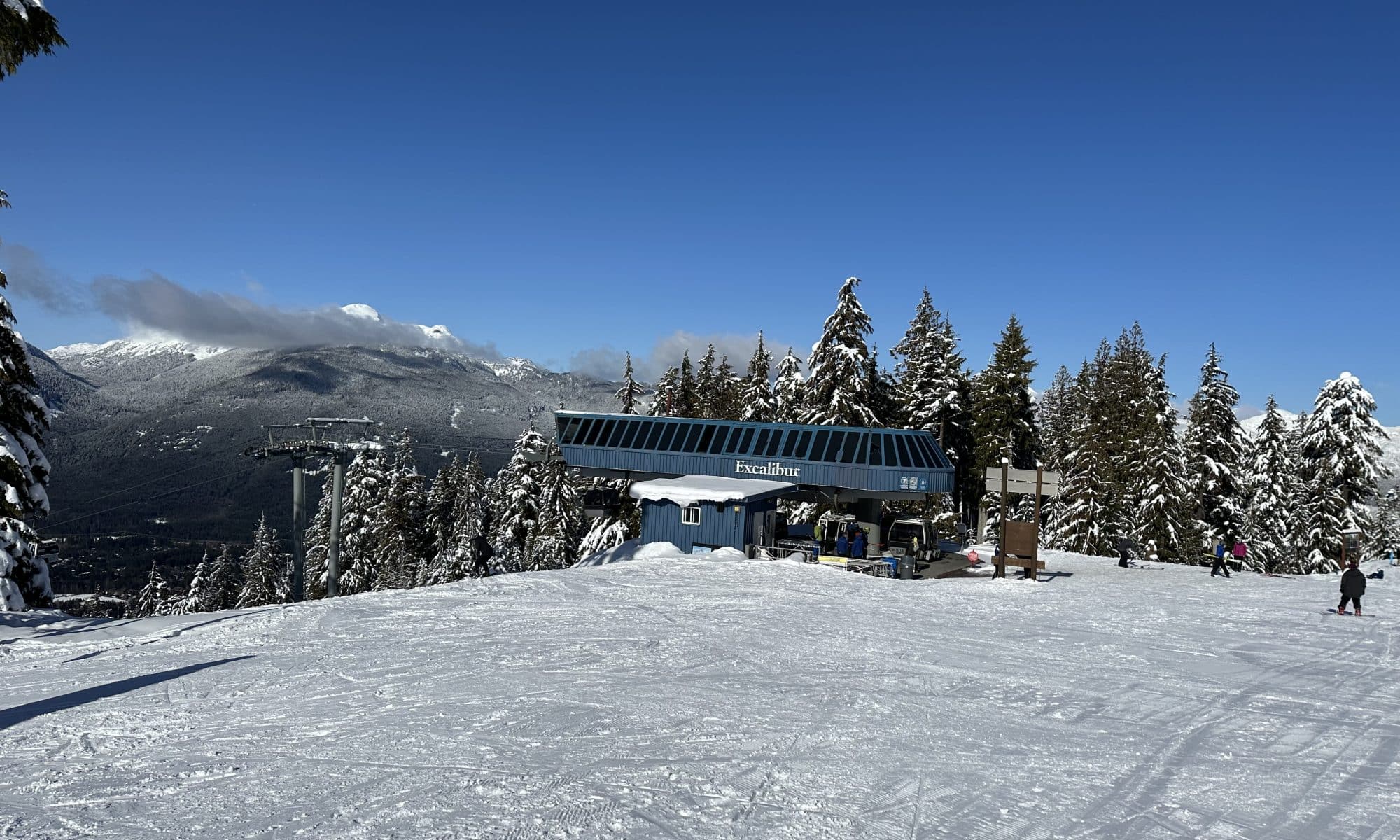Non-Resident: Owning Property and Filing Taxes on Whistler Real Estate
Managing your investment, and collecting and filing taxes for the Canadian Government is part of owning a property as a non-resident. When buying a Whistler property it is important to retain a Whistler accountant prior to writing the offer, and have discussions with any service providers, like a rental management company…you want to know how this investment fits with your expectations. Please note, this page was drafted by a real estate agent, Marion Anderson who is not an accountant. It is an overview and not a substitute for a conversation with an accountant.
Buying. Owning. Selling.
If you are a non-resident Buyer, do yourself a favor and read the following pages. It helps to stay informed.
- Non-resident: Buying
- Non-resident: Buying Process
- Non-resident: Finance and Funds
- Non-resident: Owning
- Non-resident: Taxes and Fees
- Non-resident: Underused Housing Tax
- Non-resident: Selling
- Non-resident: FAQ
Table of contents
- Non-Resident: Owning Property and Filing Taxes on Whistler Real Estate
- Buying. Owning. Selling.
- FAQ
- Managing Your Investment
- Income Tax on The Four Property Types
- 1. Rented Nightly
- 2. Business Income
- 3. Rented Monthly
- 4. Never Rented
- Change in the Use of Your Property
- Filing AnnualTax Return
- Underused Housing Tax (UHT)
- Whistler or BC Accountant
- Next Steps
FAQ
Non-residents pay 25% of the gross rental income to the Canada Customs Revenue Agency (CCRA). To reduce the 25%, an NR6 form must be filed.
Only on rental income. By filing an NR6 you don’t have to submit 25% gross rental income but can file an annual Canadian Tax return. Your property manager or BC accountant handles this for you.
Between the owner, the owner’s spouse, or common-law partner must use their Whistler residential property for at least 28 days to avoid paying UHT.
The Canadian Government has not provided a ruling on this. Best to read my blog post on Underused Housing Tax.
No. As a non-resident of Canada, you pay tax on income you receive from sources in Canada.
Only when they sell the property.
No. On rental income properties, there is GST to be collected and submitted monthly, quarterly, or annually. Then there is rental income. These are separate.
No. The Government includes you in the grouping of owners who are Canadian Citizens, you are considered an “Excluded Owner”.
Managing Your Investment
Managing your Whistler property from afar as a non-resident is simple as there are many services available to support you. You just need to identify what services you require. There will be a person or company in Whistler who will provide those services for a fee. Whistler was built on entrepreneurs who identified a service that was needed and then built a business around it. Whether you own a condo, a townhouse, or a luxury house, there is someone in Whistler who will provide service to you. Marion will help you determine what service providers you need and offer you recommendations.
Property Management Services
There are rental management companies that market and manage your property. In addition, there are property management services that manage a tenanted or residential property. All are licensed and regulated under a property management license. Avoid anyone who is not licensed, because they will not have any insurance coverage. Their governing body the British Columbia Financial Services Authority is also the regulating body for BC real estate agents.
There are a variety of rental management companies and the established ones seem to work on the marketing strategy of directing the user to their website for full details. However, this full-service rental management company also utilizes every channel available. More recently with the development of Airbnb and VRBO portals, rental management companies rely on these portals to market your property. This management fee ranges from 20% to 25% management fee, which is less than the established companies. The more established companies charge 35% plus, because they provide more services to owners and rentals. It all depends on what you want and what you are prepared to pay for the services each provides. There is also a rental management company that will market your property, and you handle the cleaning and repairs and they charge 10% base. Marion will help you determine which rental management service, if any works for your situation.
Self-management
At this stage, all you have to do is Google the type of service you are after in order for you to self-manage your property. You may have a rental property, a tenanted property, or simply need support for your residential property.
Some insurance companies will require the assurance that you have someone walking through your property each week to provide you with the best insurance rate. Imagine if something goes wrong, and the person who was doing the walk through was not qualified to have noticed the signs of a potential insurance problem. That leads to an issue getting the insurance company to pay up. That type of problem can be avoided by hiring a licensed property manager.
Regardless of your needs, there are Whistler companies that will be able to support you. Some developments have a registered rental property manager that must be retained. Other developments allow you to self-manage. Marion will be able to advise you accordingly.
Income Tax on The Four Property Types
1. Rented Nightly
In essence, Canada Revenue Agency (CRA) wants non-residents who are earning income to pay tax on that income annually. If your property earns income it must be collected and remitted at the source of payment. This source of payment is the person or company that receives the money from the guest. For example: if you hire a rental management company they will take care of this for you. Their job is to withhold 25% of the gross income and submit it to the CRA, this could be considered a pre-payment of taxes. This 25% is usually more than the actual tax liability. However, this amount is held by the CRA until the non-resident files their Canadian income tax return by April 30th.
The holdback of 25% on gross revenue can be reduced to 25% of net income after expenses when the non-resident and the rental manager co-sign the NR6 form which is then submitted to CRA for approval.
Actual income tax is determined when the income tax return is filed by your Whistler accountant and assessed by the CRA. Typically the rental management company takes care of working with the Whistler accountant to submit this annually.
GST On Nightly Rental Income
When you purchase a property with the intent of generating rental income, you apply for a GST number (unless you already have one) prior to the completion date. The Government asks you at the time of application, whether you want to submit the GST collected on a monthly, quarterly, or annual basis. Please note, GST is not deemed as income.
When you retain a property manager, they will generally charge and collect the GST on the nightly rentals. The property manager will then remit the GST collected directly to CRA monthly.
Collecting and Submitting GST on Nightly Rental Income
The person who collects the GST on the revenue and submits it to the CRA files a return quarterly.
- GST on revenue is called output tax.
- GST on expenses is called input tax.
- Output tax minus input tax is what is submitted.
Note, some rental managers who are dealing with many owners, may submit all the output tax on their own GST number. If that is the case, then when the owner files their quarterly or annual GST return, they claim the GST on their expenses. This is where having a rental property manager taking care of this for you, can relieve you from this responsibility. Again, it is vital to have an accountant guiding you through this process.
GST Threshold
When you own a property that has zoning for nightly rental and you rent your property nightly, there is a threshold of $30,000 gross revenue per year before you need to start collecting and submitting GST to the Canadian Government. At the $30,000 gross revenue, the government decides you are running a commercial operation. This threshold applies to any business in Canada.
Once you exceed that threshold, the Government of Canada tax authority, called the Canada Revenue Agency (CRA) expects you to declare your net income on nightly rentals. It also expects you to file a regular GST filing. The $30,000 threshold also has a bearing on whether you need to obtain a GST number for filing.
Note: Collecting GST on rental income is separate from paying tax on income, and all of that is different from paying GST on the purchase of your property.
Withholding Tax on Nightly Rentals
As a non-resident of Canada, you pay tax on the net income you receive from sources in Canada. The type of tax you pay and the requirement to file an income tax return depend on the type of income you receive. This is called Withholding Tax.
There are tax considerations based on whether you own the property personally, in a partnership, or in a Trust. This real estate site will not go into each of these but will focus the page on personal ownership.
In essence, Canada Revenue Agency (CRA) wants non-residents who are earning income to pay tax on that income annually. However, the CRA wants to collect and hold 25% of your gross income monthly, so that if you skip the country, at least they have received a portion of your income that would be greater than the tax owing.
When your property earns income it must be collected and remitted at the source of payment. This source of payment is the person or company that receives the money from the guest. For example: if you hire a rental management company they will take care of this for you. Their job is to withhold 25% of the gross income and submit it to the CRA, each month. This could be considered a pre-payment of taxes. This 25% is usually more than the actual tax liability. However, this amount is held by the CRA until the non-resident files their Canadian income tax return by April 30th.
The holdback of 25% on gross revenue can be reduced to 25% of net income after expenses when the non-resident and the rental manager co-sign the NR6 form which is then submitted to CRA for approval.
Actual income tax is determined when the income tax return is filed by your Whistler accountant and assessed by the CRA. Typically the rental management company takes care of working with the Whistler accountant to submit this annually.
2. Business Income
The non-resident is required to file a T1 personal tax return and pay taxes by April 30 of the following year if any taxes are payable. The rental property management will provide you with a business income statement that must be included with the T1.
Phase 2 properties termed business income properties, have a similar opportunity for the rental management company to withhold 25% of net business income. The difference is that the rental management company will request a CRA waiver for the whole “hotel” building. Note: The good point about a Phase 2 property, is that the non-resident owner can use it for 56 days. The UHT kicks in if you don’t use the Phase 1 or the Phase 2 for 28 days.
This website does not feature ski-in ski-out Phase 2 properties.
3. Rented Monthly
This section pertains to a:
- Residential house, townhome, or condominium rented to a tenant on a month-to-month lease.
- Residential House with a rental suite.
If the non-resident owns any property that is rented on a month-to-month basis, as described in the two examples in this section, you will have to submit a monthly 25% withholding tax to the CRA. Remember, the purpose of the withholding tax is so that the government holds some of your earnings until you file your annual tax return. At that time, your accountant calculates your tax liability compared to the withholding tax in the possession of the CRA.
The owner files an annual Personal Income Canadian Tax return reporting any rental income on April 30th. Remember to keep all receipts and expenses incurred with your rental.
It would be recommended that in this situation you retain the services of a licensed property manager. The property manager will take care of the submission of the 25% of your rental income sent to the CRA. In addition, the property manager will check your house for insurance purposes, and handle any of the tenant’s concerns or issues.
Note: There is no GST charged on monthly rentals, therefore, there is no GST to submit to the Government.
4. Never Rented
The best way to describe this property is to state that regardless of the zoning, the property has never been rented out from the day you bought it. It would be termed a residential property.
A non-resident owner of a property, which is not rented, is not required to file an annual income tax return as there is no income to report. However, when you sell your property, the Seller will be required to file a Personal Income Tax Return, so keep all your receipts.
Change in the Use of Your Property
From the Government of Canada’s website, “Changes in the Use of Your Property: When there is a change in use of a property you own, you may be considered to have sold all or part of your property even though you did not actually sell it. The following are some sample situations:
- “You change all or part of your principal residence to a rental or business operation
- You change your rental or business operation to a principal residence”
Example 1) You buy a residential property that is also zoned for nightly rental, and like the sellers, you are going to keep the property residential and not rent it out as much as you can. However, you decide that you need to rent the property out and earn as much income as you can. You have now enacted a change of use.
Example 2: You buy a Whistler property that is zoned for nightly rental. The sellers have been earning over $30,000 in income from their property and you want to do the same. Therefore the GST is deferred, meaning the buyer does not pay GST on the sale price. The family situation changes and you end up using the property for family rather than renting it out. You have enacted a change of use.
For more information, read the blog post, GST: Change of Use
Filing AnnualTax Return
Filing an annual Canadian Tax return depends on whether your property is generating revenue.
- When you own a property that is zoned for nightly rentals and you are generating revenue then you must file a tax return by April 30th every year.
- If you own a property and you are generating revenue from a tenant who has rented the house or a suite in the house monthly, you must file a tax return by April 30th each year.
- If you are not generating revenue then you do not have to file an annual tax return, as there is no income to report.
Underused Housing Tax (UHT)
The UHT is not as bad as it might first seem. It all depends on the name(s) on the title deed and the intent of usage. The page, Non-Resident: Underused Housing Tax (UHT) offers a fully researched report before you decide whether UHT is an obstacle to purchasing or not. In summary:
- As an affected owner (non-resident), you must file an annual UHT return by April 30th. This document tells the GOC how much you have used your property.
- Usage is based on the previous calendar year.
- Each affected owner of the property must file their own UHT return.
- If an affected owner has used the property a minimum of 28 days then he files the UHT return, and does not pay any UHT.
- If an affected owner of the property has not used the property a minimum of 28 days, he files the UHT return and “writes a cheque” for his percentage of ownership x 1% of the market value of your property.
Whistler or BC Accountant
The Whistler accountants and lawyers have many clients who are in the same situation as you are. Therefore, when one client has a concern it means that 20 or more have the same concern. Working with a Vancouver professional you may find you are the only one in the practice who has a rental property in Whistler with questions. The UHT situation with the lack of information about non-resident and rental income property is a good example of this. The Whistler accountants and rental management companies know each other, they rely on each other to provide a better service to their clients.
Next Steps
The steps above are a guideline as to what you can expect. With an experienced Whistler realtor and a local accountant and lawyer on your team, this will not be a difficult process. If you are a non-resident who is considering buying or selling a property in Whistler, contact Marion Anderson, author of this site. If you have read the non-resident pages, you already know what kind of realtor, and person Marion Anderson is.
If you think I would be a good fit to work with you and your family, and you are not already working with a Whistler realtor, please contact me. My name is Marion Anderson, and I help people buy real estate in Whistler.
Marion
Marion Anderson Personal Real Estate Corporation
Sutton Group-West Coast Realty, Whistler
marion@marionanderson.com (604) 938-3885


